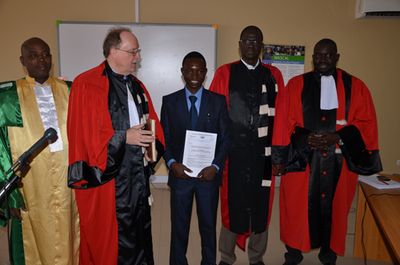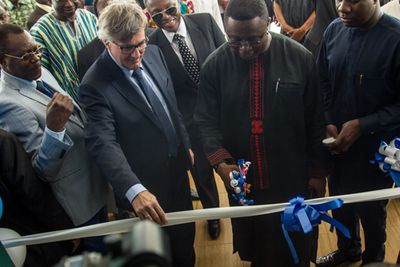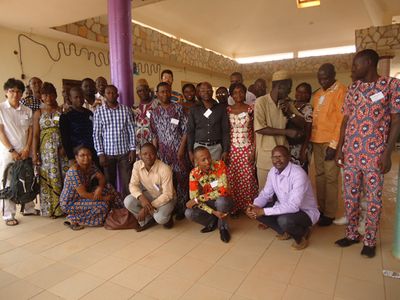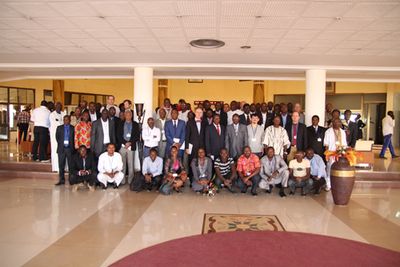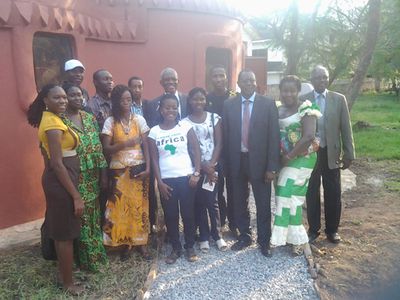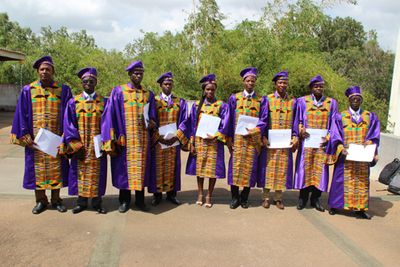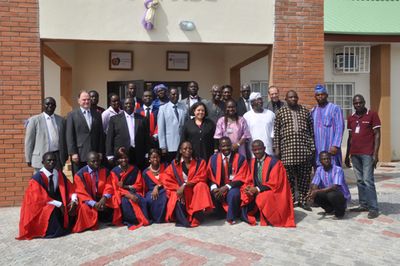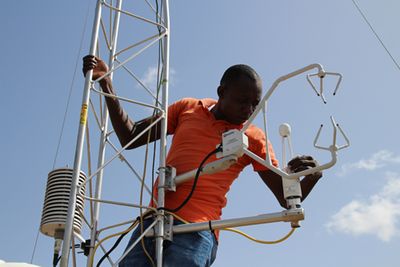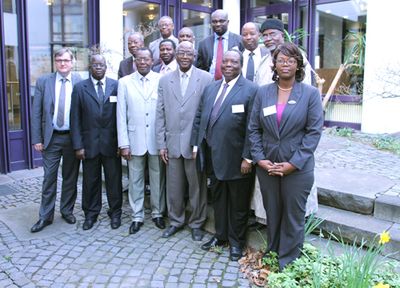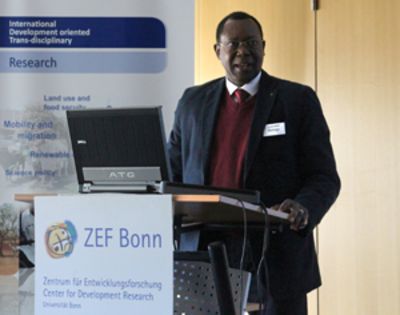The following six students defended their theses successfully in front of an academic committee on April 13-15, 2015:
Pilo Mikemina from Togo. His doctoral thesis was about Collective action and farmers’ private climate change adaptation strategies in the Savanna region in Togo.
Elhadji Iro Illa from Niger wrote his thesis on Integrated assessment of vulnerability of rural households to climate stress across regional levels in Niger.
Yameogo Bindayaboa Thomas from Burkina Faso did his doctoral research on Social capital and farmers’ adaptations strategies to climate change in Burkina Faso.
John Appah from Ghana wrote his doctoral thesis about Psycho-socioeconomic analysis of rural farm communities’ risk perception and adaptive behavioural responses to climate change and variability in the Atankwidi River Basin of Northern Ghana.
Boris Lokonon from Benin wrote his thesis about Vulnérabilité des agriculteurs et des communautés, résilience aux chocs climatiques et stratégies d’adaptation dans le Bassin du Niger au Bénin.
Raymond Jatta from The Gambia graduated about Climate risk management strategies for rural communities in The Gambia and Senegal. Assessing the usefulness of cereal banking.
The ceremony in Dakar on April 17 was attended by the following officials:
Professor Ahmadou Aly Mbaye, Director of the WASCAL-UCAD program;
Dr. Mamadou Ouattara, Director of the PhD WASCAL program;
Dr. Laurent Sedogo, WASCAL Executive Director and Prof. Moudibo Haidara, Head of the WASCAL Governing Board;
Dr. Tobias Wünscher, Senior Researcher at ZEF and lecturerer at WASCAL-UCAD, representing ZEF-Director Professor von Braun;
Bernhard Kampmann, Ambassador of Germany in Senegal;
Abdoulaye Balde, Minister of Environment and Sustainable Development of Senegal.
The ceremony was broadcast on RTS1 (Radiodiffusion Télévision Sénégalaise) on April 22, 2015. You can watch the tv-report below.
98 doctoral and 60 master students have been enrolled in the complete WASCAL program to date. Twenty of the master students and 16 of the doctoral students (including the six in Senegal) have completed their studies.
Link:
www.youtube.com/watch


